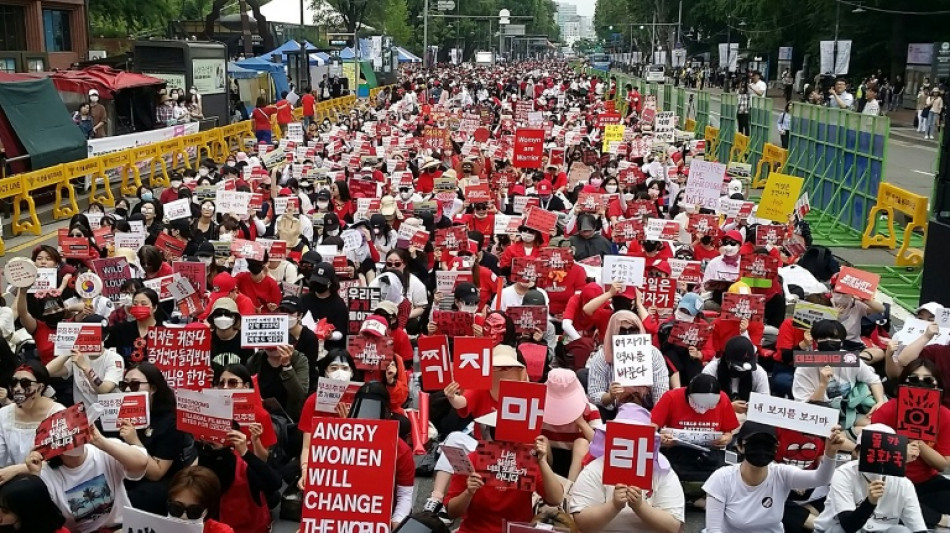

South Korea overturns 60-year ruling on woman's self-defence case
A South Korean court acquitted on Wednesday a woman convicted six decades ago for defending herself against sexual violence, after she challenged the ruling inspired by the country’s #MeToo movement.
Choi Mal-ja was 19 in 1964 when she was attacked by a 21-year-old man in the southern town of Gimhae.
He pinned her to the ground and repeatedly forced his tongue into her mouth, at one point blocking her nose to stop her from breathing, according to court records.
Choi managed to break free by biting off about 1.5 centimetres (0.6 inches) of his tongue.
In one of South Korea's most contentious rulings on sexual violence, the aggressor received only six months in prison, suspended for two years, for trespassing and intimidation -- but not attempted rape.
But Choi, now 79, was convicted of causing grievous bodily harm and handed a 10-month prison sentence, suspended for two years.
That decision was overturned Wednesday by the Busan District Court which ruled her actions "constitute justifiable self-defence" under South Korean law.
Choi's actions at the time are now "deemed an attempt to escape an unjust infringement on her bodily integrity and sexual self-determination", the court said in a statement sent to AFP.
The ruling overturns Choi's 1965 conviction, when the court found her actions had "exceeded the reasonable bounds of legally permissible self-defence".
Choi's case gained renewed momentum decades later after the #MeToo movement, which took off globally in 2017, inspired her to seek justice.
In South Korea, massive women's rights protests have led to victories on issues ranging from abortion access to tougher penalties for spycam crimes.
Choi filed for a retrial in 2020, but lower courts initially rejected her petition.
After years of campaigning and an appeal, South Korea's top court finally ordered a retrial in 2024.
"For 61 years, the state made me live as a criminal," Choi told reporters in July, ahead of her retrial hearing.
She said she hoped future generations could "live in a world free from sexual violence where they can enjoy human rights and a happy life".
許-X.Xǔ--THT-士蔑報




